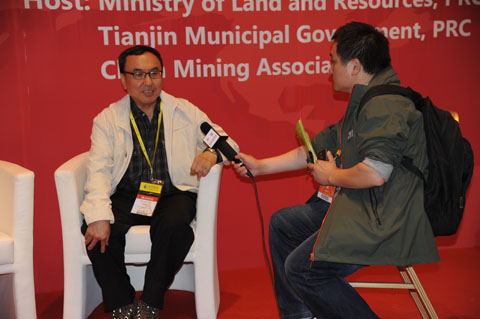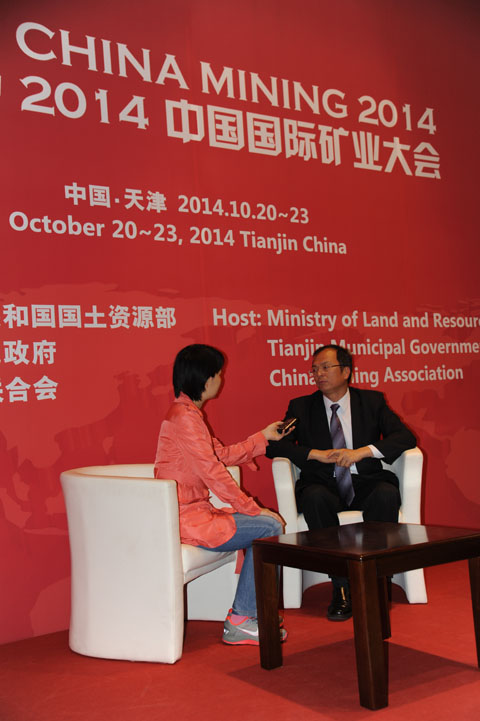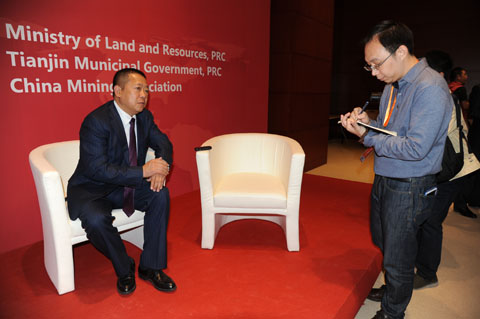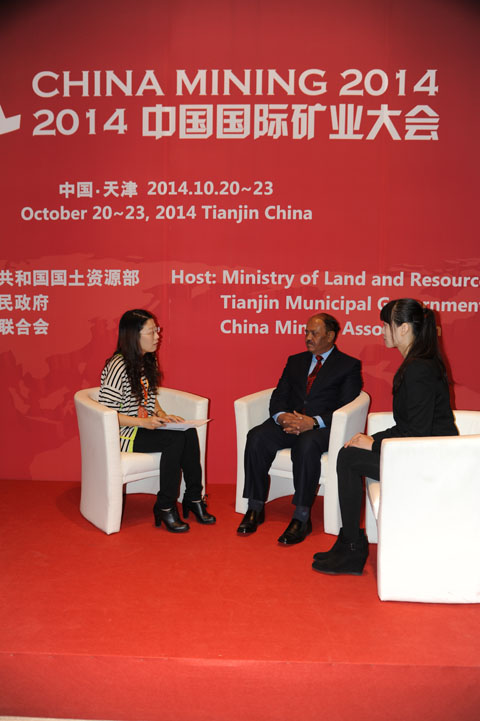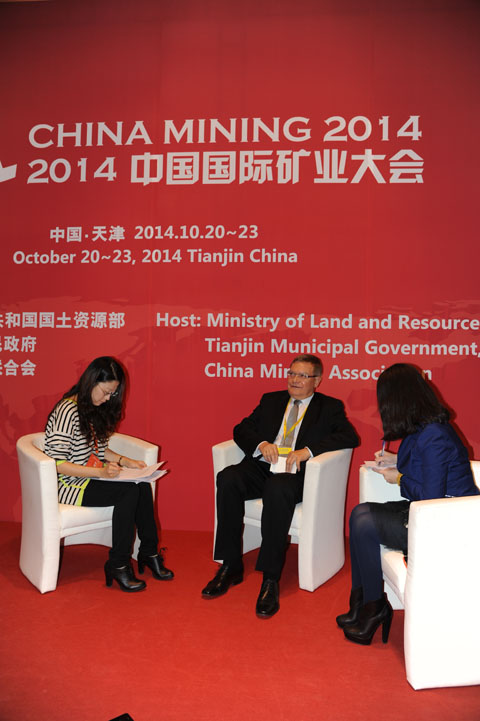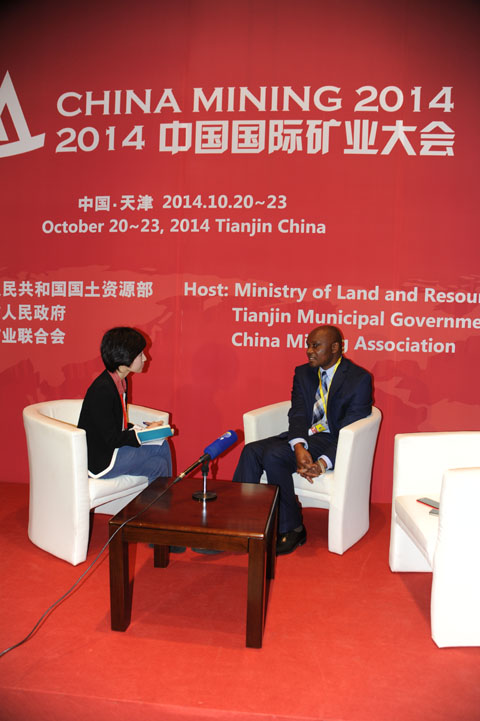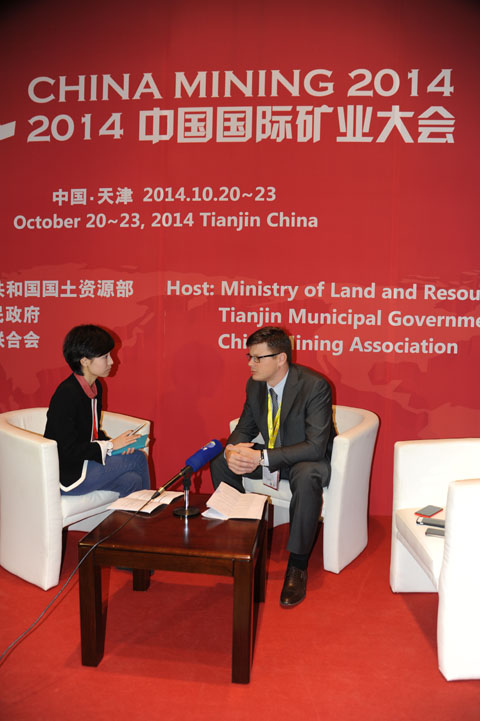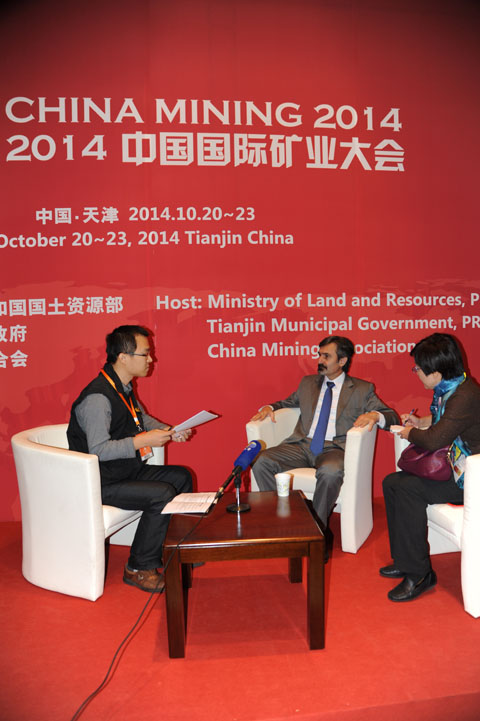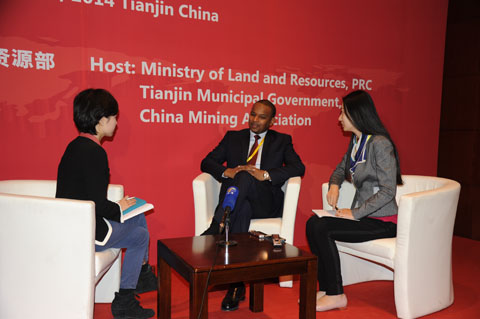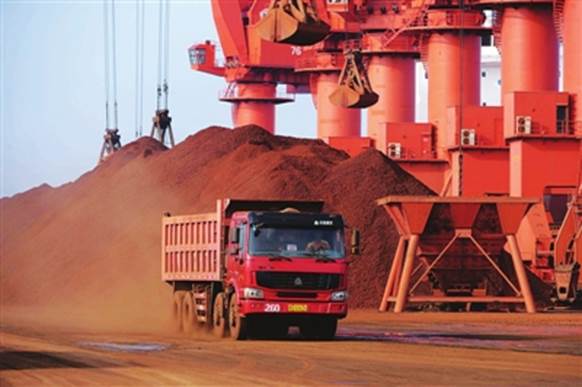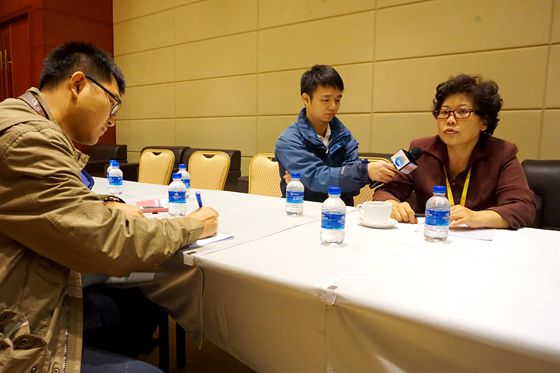|
The Three Trends of Global Mining Policies Adjustment
In general, three trends can be seen from the current global mining policies adjustment:
——Many countries try to strengthen the mining management and improve the mining investment climate.
——Adjusting taxes on mining becomes an important element of the reforms in the mining industry.
——More and more developing countries with rich mineral resources start to upgrade the processing of
mineral resources to improve the value of mineral products.
In 2014, influenced by the macro-economic situation, the situation of global mining industry showed a bleakness, so there were some new adjustments in global mining policies. In order to improve the mining investment climate and boost the development of mining industry, many countries began to carry out reforms in mining. They have carried out or planned to adjust some of mining policies to increase national revenue and promote the economic growth.
On a whole, in terms of the modes and contents of global mining policies adjustment, we should both encourage and attract foreign investments to develop mining industry, and increase national mining income to gain more benefits for the masses. It would still be a main direction to balance for lots of countries, especially those developing countries with rich mineral resources, and a main tone for global mining policies adjustment.
Trend One: Strengthen the mining management and improve the mining investment climate.
In order to encourage mineral exploitation, they strengthen the management of links in many countries, from applications for license to late supervision so as to improve the mining investment climate. The main forms are to strengthen the fine management of mineral resources, to reduce the uncertainty of laws by modifying mining laws to keep in line with the best international practice; to tighten up the supervision on mineral activities; and to enhance the competition for participating in international mineral activities, etc.
The first one is to strengthen the fine management of mineral resources.
Several years ago, Ontario government made special laws for diamond, Commonwealth of Australia passed Offshore Petroleum and Greenhouse Gas Storage Law, North Territory of Australia passed on Geothermal Resources Law, Queensland published Clean Coal Law, and Republic of Zambia enacted Uranium Mine Exploration Law as follow, the Congress of Mongolia passed “The Widespread Mining Resources Law” in January, 2014, specializing in the management of the mineral exploration, including those mineral resources which are widely distributed, such as limestone, sand and gravel and so on. However, some regulations about this in Mining Law will lose efficacy. This law authorized provincial governments to issue special license, hoping to promote the exploration of this kind of mines. Moreover, Namibia was drafting the act of strategic exploration of mineral resources. The legislation reflected that quite a lot of countries began to strengthen the fine management of mineral resources based on the characteristics of their own resources.
The second one is to standardize the management of mining rights.
By modifying Mining Law, many countries improved the professional level of mining management, strengthened late supervision and promoted the sustainable development of mining industry. It has been the reform direction for many countries to standardize the management of mining rights and create a good climate of mineral investment.
In Asia, the Mongolian Parliament revised most of the content of Mining Law in July, 2014. In order to stimulate mining development and attract more investment, "Mining Law" amendment will raise the rates from the country`s total area of about 8% to 20%, which are allowed for exploration and mining, and also offer mining companies an opportunity to explore coal, copper, gold and other mineral by canceling the regulations of suspending new exploration license, which were carried out in June, 2010. Burma is also working to modify the mining law, mainly planning to remove the restrictions on foreign investment and make local communities to benefit from the development of mining.
In Africa, Kenya`s cabinet passed the proposals of mining law in January, 2014, hoping to attract investments from geological mapping and investigation and exploration of mineral resources. Algeria has enacted new mining law, stipulating clearly that the mining rights will be awarded only to those qualified mineral companies, and meanwhile, established two large state-owned mining mechanisms, Geological Service Bureau and the State Bureau of mine, to assist the national management of mining industry.
In March, 2014, the Congress of South Africa passed the amendment of Mineral and Petroleum Resources Exploration Law, in which there were some key changes. The government can obtain 20% shares of energy enterprises, and can also acquire shares with any proportion according to the price in the agreement.
Mozambique, Ghana, Sudan and Rwanda also began to revise the new mining law to strengthen mineral management.
In South America, new mining law has been submitted to Congress for discussion in March, 2014, aiming at reducing legal risks, attracting more foreign funds, promoting the sustainable development of the domestic mining industry, strengthening the co-operations among state governments, restoring the damage to the environment and essentially securing miners` health and safety.
In May, 2014, the new Mining Law was approved by House of Representatives in Bolivia, and was in a discussion currently in Senate. The new law explicitly proposed the mining and metal smelting industry were top priorities in the development of national industries. It prohibited by official order private enterprises to register mineral products as their own property for the first time.
Haiti intended to form a legal framework for investigation and exploration through the new Mining Law.
In Oceania, Western Australia planned to make modifications to Mining Law so as to clarify the environmental responsibilities, which was also an important part in the environment reform project of mine and petroleum department.
In Europe, the House of Commons approved the Deep-sea Mining Exploration Proposals and would submit it to the House of Lords for discussion.
At the global level, the Law and Technology Commission, a branch of the International Council of Seabed Authority planned to draw up a draft on carrying out the exploration of poly-metallic nodules in three regions to promote the exploration in deep seabed globally.
Moreover, besides legislative measures, many countries also conducted evaluation and verification of mining industry, and canceled the mining right license without any input. They also cracked down on illegal mining disorder and rectified mining order.
The third one is to speed up examination and approval of mining right and relevant procedures. The tedious application procedures appeared daunting for mining investors. In order to change this situation, some countries have introduced or planned to carry out policies to simplify the examination and approval process and shorten the time in 2014. The Philippines, for example, planned to modify Mining Law, and the House of Representatives has drafted the proposal concerning shortening terms of mining license for approval.
Because mining projects needed at least 21 government departments’ approval like land, water, cultural relics, environment, power and transportation department etc., Peru, in June, 2014, has staged a series of reform measures as regards bureaucracy, including the acceleration of examination and approval for investment projects, etc. From July 14, large and medium-sized mining companies in Peru can submit EIA Report directly via the Internet.
To promote infrastructure, mining industry and oil project financing, Colombia made plans to speed up examination and approval process of environment license in September, 2014, consequently replacing all the applications that demand being submitted in written form with oral presentation and reducing the time of examination and approval from several years to five months.
Trend Two: Adjust the tax and raise fiscal revenue
Tax adjustment, including royalty, rent of mineral estate, export and import tariffs and etc., remained the important content of the reform of mining industries in many countries, most of which were those in Africa. Overall, keeping increases in taxes directly related to mining industries became general trend of tax adjusting. Introducing or raising royalty rates was main trend of royalty adjustment; some countries mainly raised mining industry income by increasing export tariffs and corporation income tax as well as abolishing tax stabilizing term; reducing or exempting export tariffs and other taxes and dues or fixing the tax rate were other mainstream in tax adjusting. All these methods of encouraging investment in mining industry also aimed at increase fiscal revenue.
I. Introducing or raising royalty rates was main direction of royalty adjustment
In January 2014, Mexico, which used not to levy any royalty, implemented the new mining industry tax system and a 7.5% royalty on mining revenues would be imposed on mining corporations, meanwhile an additional 0.5% surcharge on precious metals.
In March, Brazil new mining law was submitted to the congress, according to which, the upper limit of financial compensation rate on mining exploration would be raised from the previous 3% to 4%.
In August, Indian cabinet officially approved the rise of mineral royalty mainly on Iron ore, copper and bauxite, etc. Therein, royalty rate on iron ore would be raised from 10% to 15%, bauxite from 0.5% to 0.6%, copper from 4.2% to 4.62%.
Rwanda also planned to publish its new mining law and royalty was already introduced in the draft, according to which, the base metals royalty rate was made 4% and precious metals and stones royalty rate was 6%. Mozambique planned to push up coal royalty rates which was only 3% now, far lower than the 5% base metals royalty and 10% diamond premium. Besides, DR Congo also planned a dramatic increase on royalty, raising that of copper-cobalt mine from 2% to 4% instead of 10% initially expected by the government and of gold mine from 2.5% to 3.5%. Russia intended to raise the oil royalty by 1.7 times and the mineral extract tax of gas and gas condensate by 6.5 times.
Meanwhile, some countries lowered the royalty. For example, to boost the production of gold mining corporations with the gold price in doldrums, Zimbabwe pushed the gold mining royalty down from the 7% at present to 5% which was still above the global average level. So these countries were believed to try to raise fiscal revenue through the multiplication of mining products.
II. Changing the tariffs and other taxes and fees as the most flexible means of regulation
Generally, the reduction of export duties and other taxes or the fixing of tax rate often became an important means to encourage mining investment. January 2014, the Investment Committee of the Philippines issued the "2014 Investment Priority Plan." Mining industry would enjoy preferential policy of the fixed equipment imported duty-free, but could no longer enjoy tax exemption period. The implementation period of the investment priority plan would be up to three years.
By new mining law in February, Algeria would be exempted from tariff and value-added tax of capital equipment, materials and etc during the exploration and production activities. All terms related to the taxes and fees in the law will take effect from January 1, 2015.
In March, Cuba enacted the new foreign investment law to get much-needed funds and promote economic growth. Under the new law, gains tax would be down from 30% to 15% and the new foreign tradesman could enjoy a 8-year duty-free treatment, etc.
In July, in order to reduce the burden on industry and consumers as well as to help the Australian government successfully deal with economic transformation of the post-mining era, the Australian Federal Senate passed the bill of removing carbon tax, thus becoming the first developed country to do so. In September, the Australian Federal Senate approved the repeal of the controversial 30% mineral resources rent tax, which now had been submitted the House of Representatives and was expected to get passed.
In September, the Russian relevant departments said they planned to gradually reduce crude oil and oil products export duties in three years.
In addition, Indonesia planned to cut the concentrate export tariff on the mining corporations having the construction plan of mining companies concentrate, such as reducing copper concentrate export tax from the previous 25% to less than 10%. Peru planned to offer a fixed tax contract for mining project with the investment amount above $500 million, and kept the rate unchanged for 15 years.
For many countries, raising export tariffs and corporate income tax and the abolition of tax stability clause had become the main direct measures of increasing mining revenue. In January 2014, Zimbabwe began to levy 15% export taxes on rough diamond and platinum ore concentrate, to encourage the mining corporation to build local Platinum ore refinery and diamond polishing center.
On March 25, 2014, Iran began to levy a 10% export tariff on iron ore and that would be raised to 20% in the next three years. In August, Mozambique new mining law came into effect and stable tax provisions were abolished.
In April 2014, the President of Chile submitted to Parliament an important tax reform bill which aimed to be a substantial increase in corporation income tax. The new bill proposed that the corporation income tax will gradually rise from the current 20% to 25% in 2017. In addition, the tax reform also included cancellation of foreign investment law, namely DL600. Chile’s House Finance Committee had voted to cancel the foreign investment law DL600 terms. According to the provisions, investors carrying money, goods and other forms of direct investment into Chile were required to sign a foreign investment contract with the Government, as well as non-discrimination protection and appealing mechanism established to fulfill the contract. The bill contained provisions to ensure the stability of the special mining tax, but this provision was only suitable for more than $50 million mining projects, allowing investors to pay corporate income tax according to a fixed tax rate in the next 10 years. The Chilean government announced that it had reached an agreement with the opposite parties to establish a working committee which was responsible for drafting a proposal to replace the DL600 under the framework of the foreign investment law.
Still some other countries adopted different ways of tax adjusting. For example, Kenya`s mining ministry planned to rise the mining license mining rents to $2500 shilling per square kilometer a year, 9 times higher than the original standard.
In addition, Mali planned to pass mineral rights verification assessment to lay a solid foundation for the further tax rate adjustment. Zambia planned to review the mining tax to increase the government revenue.
Trend Three: Pay attention to the deep processing of mineral products and improve the added value
As the direct contributions of exporting primary minerals to economic growth is not significant, more and more developing countries began to pay attention to the deep processing of minerals. Many countries changed their exclusive attitudes towards foreign investment from the control of mining right to the entire mining industry chain. They tried to gain the maximum profit in the entire life cycle of mineral resources exploration mainly through domestic legislation. Among the countries which have issued the export ban on undressed ore, Indonesia is the most typical one. In January 2014, before a total ban on ore export regulations issued, President Mr. Susilo signed the 2014 No.1 government regulations to prohibit the undressed ore exports clearly, while the fine ore after dressing or rough machining can prolong deadline and may continue to export until after January 2017. Many mining companies are greatly influenced by this and have expectations of the policy change. In August, the government of Indonesia declared that they didn`t mean to cancel the current implementation of nickel ore and bauxite ore export bans, in order to protect the billions of dollars of investment in the refinery industry.
There are many countries planning to introduce such a similar policy.In January 2014, the Kenyan Cabinet passed the proposal on mining law, seeking to make Kenya as the of mineral processing, increasing added value and trade center in East Africa.
In March, the South African Congress passed the Mineral and Petroleum Resources Development Amendment Bill, and authorized mining minister to release strategy of mineral resources, force mining companies to do mineral processing, and some products must be sold to local manufacturing enterprises. Brazilian new mining law submitted to Congress encouraged domestic production and mining industry development, and promoted the sustainable development of mining industry.
In September, Zimbabwe planned to call for mining companies to export undressed ore after processing in the domestic. The Philippine’s proposal of export ban on undressed ore were reviewed by the relevant committees in the house of representatives, and would be submitted to congress to debate and vote.
In addition, the mining ministry of Democratic Republic of the Congo announced to stop exporting ore concentrate in 2015 and required the mining company to processing ore in the domestic. The Angolan government hoped that foreign investment could help Angola to strengthen mineral processing ability and enhance the added value of the mineral commodity exports.
Allah`s iron ore mining plan starting in 2016 will become Uruguay`s first large-scale mining projects in the true sense. Uruguay hopes to expand the industrial chain, and provide 15% iron ore product for the domestic market to develop steel industry.
In brief, under the situations of slow economic recovery, about 19 countries and regions reformed their mining law and improve the mining investment environment to encourage investment. Among them, many countries also carried the reform of administrative examination and approval to improve the efficiency, and they also make the mining order rectification for the benefit of mining development.
In the process of speeding up economic development, many countries also gradually improve their environmental protection consciousness at the same time and pay more attention to the sustainability of mining. But the fact that should not be ignored is that mining investment risk is also increasing, and the benign development of the global mining face difficulties. Resource nationalism shows an increasing trend, such as compulsory participation in South Africa and Mozambique, and export ban on raw ore with Indonesia as the most typical one, etc. (Sun Chunqiang, Yan Weidong) (translated by TLRHVC)
About CHINA MINING
Since first held in 1999, the scope and influence of CHINA MINING has grown rapidly year by year. As a global mining summit forum and exhibition, CHINA MINING Congress and Expo has become one of the world’s top mining events, and one of the world’s largest mining exploration, development and trading platforms, covering all aspects of the whole mining industry chain, including geological survey, exploration and development, mining rights trading, mining investment and financing, smelting and processing, mining techniques and equipment, mining services, etc. playing an active promotion role in creating exchange opportunities and enhancing mutual cooperation between domestic and foreign mining enterprises.
CHINA MINING Congress and Expo 2014 will be held at Meijiang Convention and Exhibition Center in Tianjin on November 20th-23rd, 2014. We invite you to join the event and to celebrate the 16th anniversary of CHINA MINING with us. For more information about CHINA MINING 2014, please visit: www.chinaminingtj.org.
|
